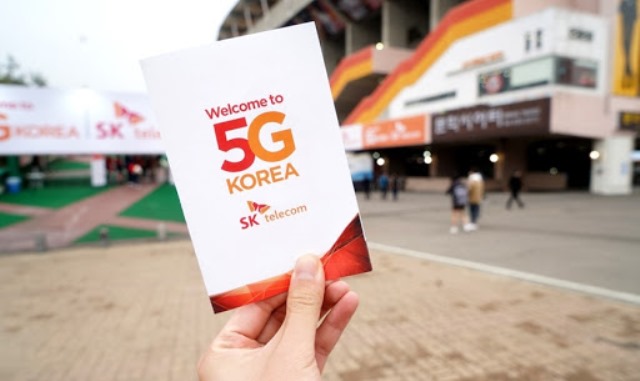Some of the 5G smartphone users in South Korea are up in the arms to take legal action against three major telecom operators — SK Telecom, KT and LG Uplus — for poor quality of the 5G network, Yonhap news agency reported.
 Around 1,000 5G smartphone users are likely to file a lawsuit to seek at least $890 in compensation per user from the three mobile carriers over their 5G network quality that fell short of expectations, despite the costlier pay plans, according to Kim Jin-wook, a lawyer at law firm Joowon.
Around 1,000 5G smartphone users are likely to file a lawsuit to seek at least $890 in compensation per user from the three mobile carriers over their 5G network quality that fell short of expectations, despite the costlier pay plans, according to Kim Jin-wook, a lawyer at law firm Joowon.
Kim argues that 5G network quality is not a discernible improvement from previous 4G LTE networks and has drawbacks, such as limited availability.
SK Telecom, KT and LG Uplus deployed 166,250 5G base stations as of November last year, which is 19 percent of the number of 4G base stations, according to industry tracker Opensignal.
5G coverage of SK Telecom, KT and LG Uplus is in major urban areas, such as Seoul, with carriers aiming for nationwide coverage by next year.
Telecom operators initially advertised 5G download speeds as being 20 times faster than 4G LTE, but a government report last year found that average 5G download speeds were around four times faster than those of 4G.
“Considering that monthly 5G plans are around 50,000 won more expensive than 4G LTE plans, we expect around 1 million won in compensation for users subscribed to two-year plans,” said Kim. “The lawsuit will be filed in May after gathering more participants.”
The lawsuit comes amid years of smartphone user complaints of slower than advertised 5G speeds and low quality.
Consumer advocacy group Korea National Council of Consumer Organizations in October recommended carriers to pay as much as 350,000 won in compensation to users who filed for mediation over mediocre 5G service quality.
South Korea had 12.87 million 5G subscriptions, accounting for 18.2 percent of the total 70.69 million mobile network users, according to ICT ministry data. Subscribers to 4G networks accounted for the majority of total mobile network users at 73 per cent in January.
Telecom operators recently rolled out cheaper 5G plans, aiming for faster user migration from previous generation networks.





